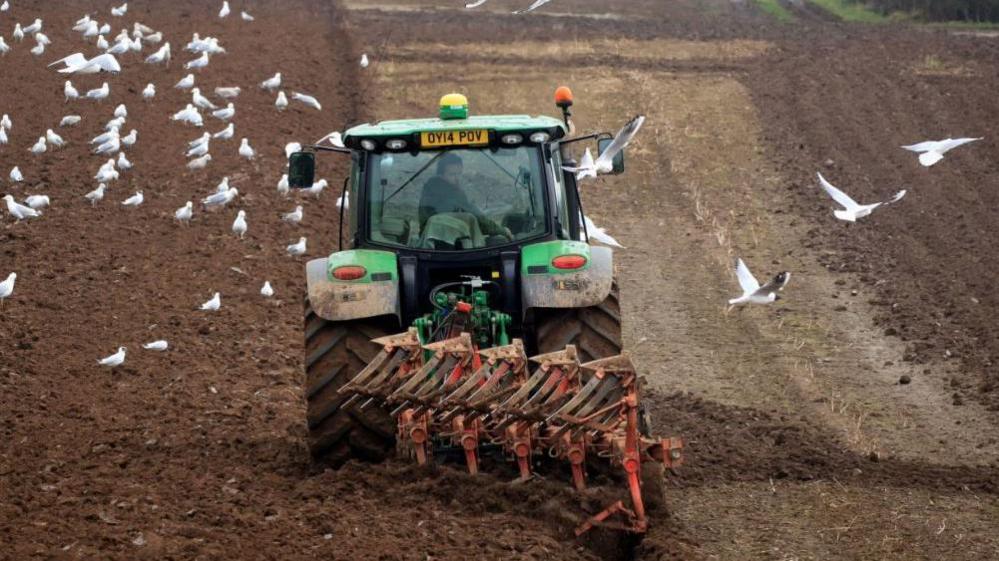Vets drafted in to help with human health in 'UK first'
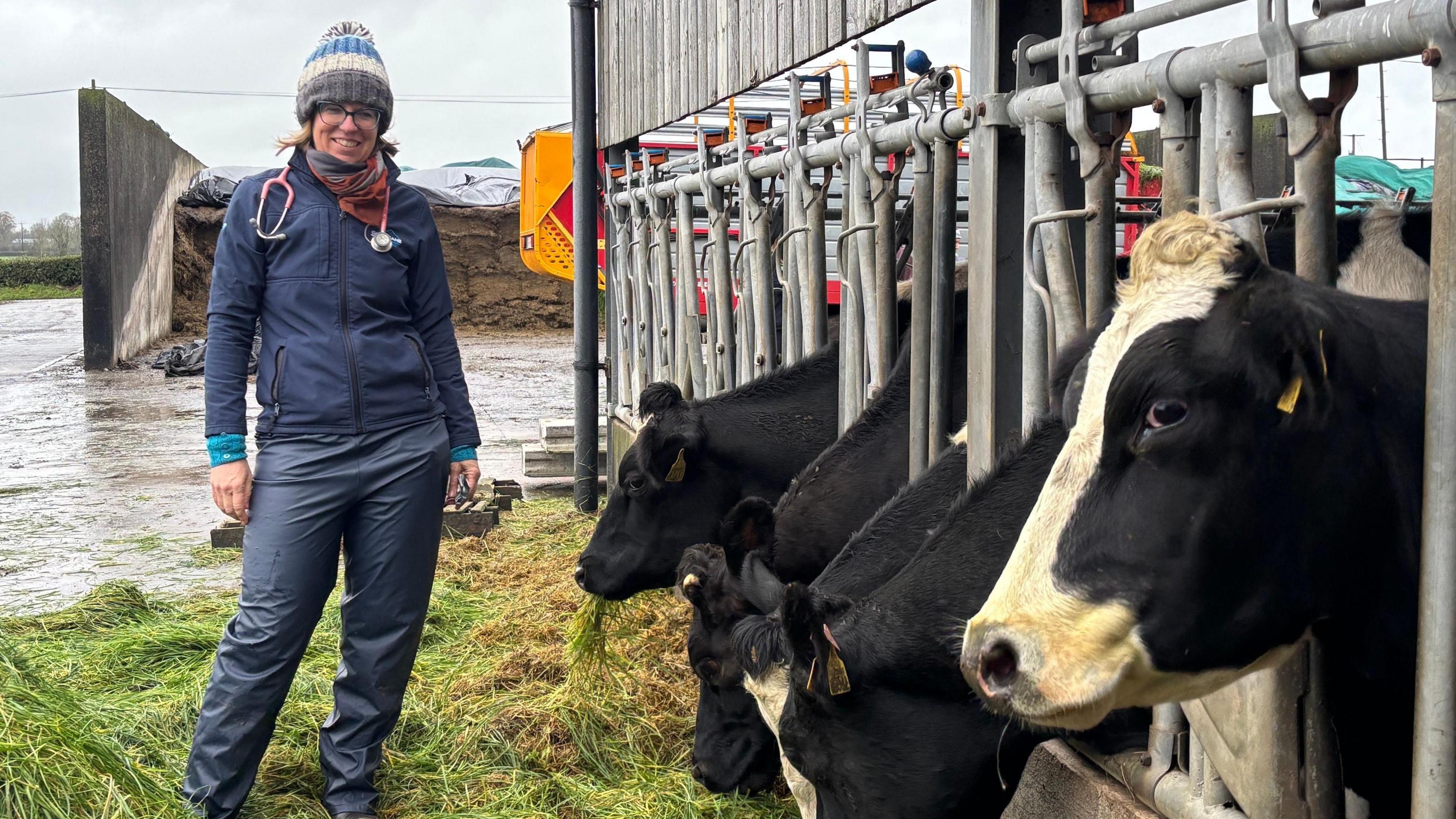
Vet Melanie Spahn says farmers frequently ask her health related questions
- Published
Vets have been drafted in as part of a new project to help farmers stay healthy.
They will be encouraged to have health-related conversations with farmers on the farm.
Barry O'Boyle, a dairy farmer from County Antrim, said many farmers "don't want to take up doctors' time" and this initiative should help change that.
"They feel it's maybe not important enough, but it's always better to get checked out if you do feel you're not at yourself," he said. "We're happier to talk about our animals' health than our own".
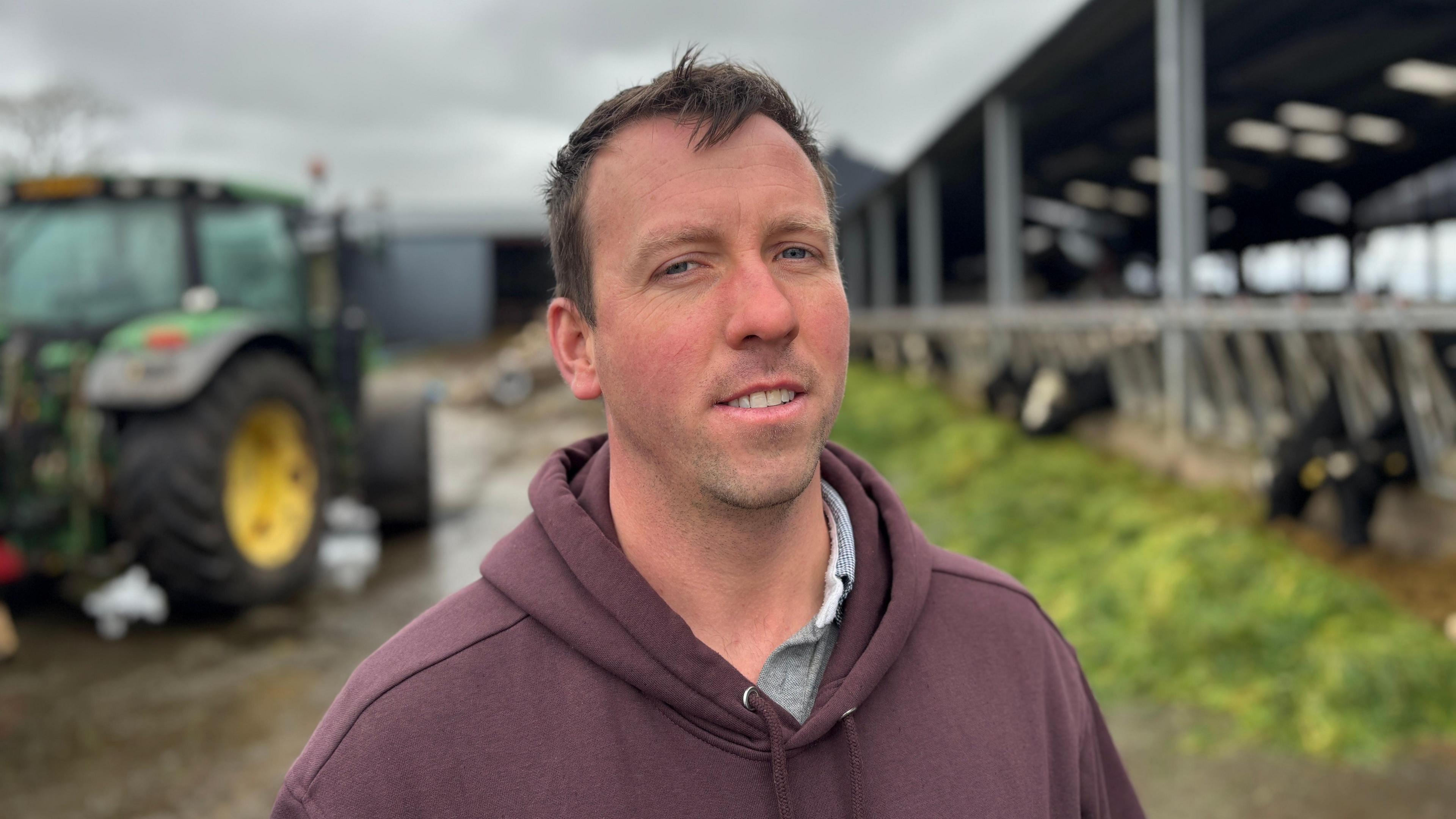
Barry O'Boyle says farmers keep things a bit more "shallow" than talking about their health
Mr O'Boyle's father, also a farmer, died shortly after his cancer diagnosis.
"It was an aggressive form of cancer which my father had but who knows, possibly if symptoms had been caught earlier, it might have helped a small bit."
The 'Nip It In The Bud' campaign is a collaboration between the Farming Community Network and the Macmillan Cancer Support charity.
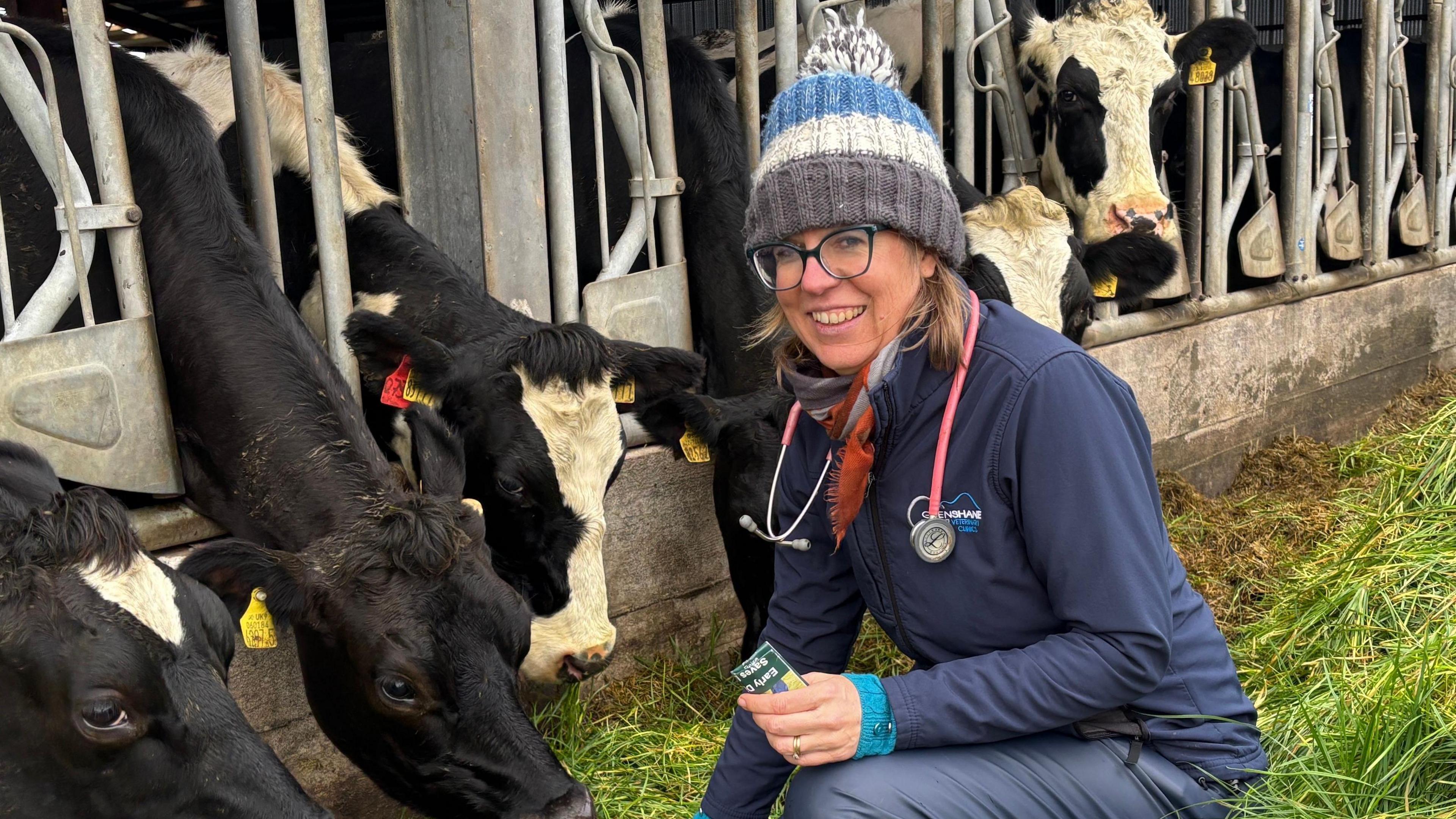
Melanie is a vet who will now ask the farmers she visits about their health
Dr Melanie Spahn-Holmes, who has been a vet for almost 25 years, she says vets often become "part of the family" to farmers and that she is frequently asked health-related questions by them because vets "know about some medical things".
"Whenever you're on farms that conversation is very easy.
"I always have to say, go back to the doctors, because I'm not a doctor, and yes, I look at calves and cows, but it's not the same as humans!"
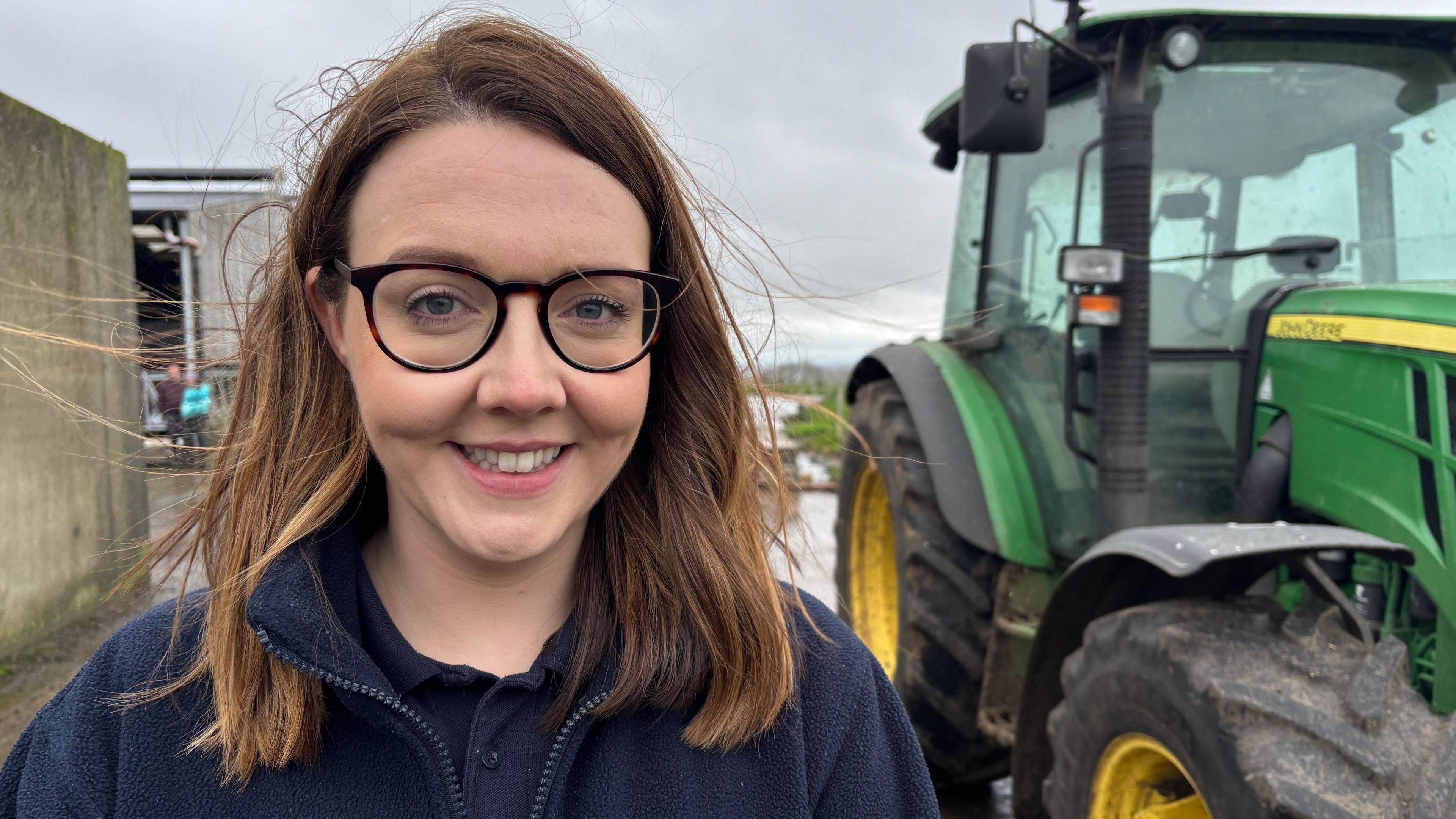
Katrina Crawford was a radiographer before joining the FCN and says farmers 'prioritise the farm' over their health
Katrina Crawford, a radiographer who has joined the Farming Community Network (FCN), says healthcare workers are increasingly concerned at how late diagnoses can come for farmers because of delays seeking help.
"It's more anecdotal evidence at the minute, but it's coming from consultants, from nurses, it's coming from physiotherapists, radiographers that it really is a common theme," she said.
"For farming patients their number one priority is their farm. We have had patients delay radiotherapy because it's lambing time.
"We can't change that, but what we can do is build the support around it and really build the awareness that early detection is so important."
To try and raise awareness the FCN wants to spread the message that farmers need to get diagnosed early.
As part of their annual 35 hours of continuing education, all vets will now learn about human health and on communication skills for vets to be confident in carrying out healthcare conversations with farmers.
They will give out awareness-raising leaflets about the importance of early diagnosis, and signpost farmers to doctors.
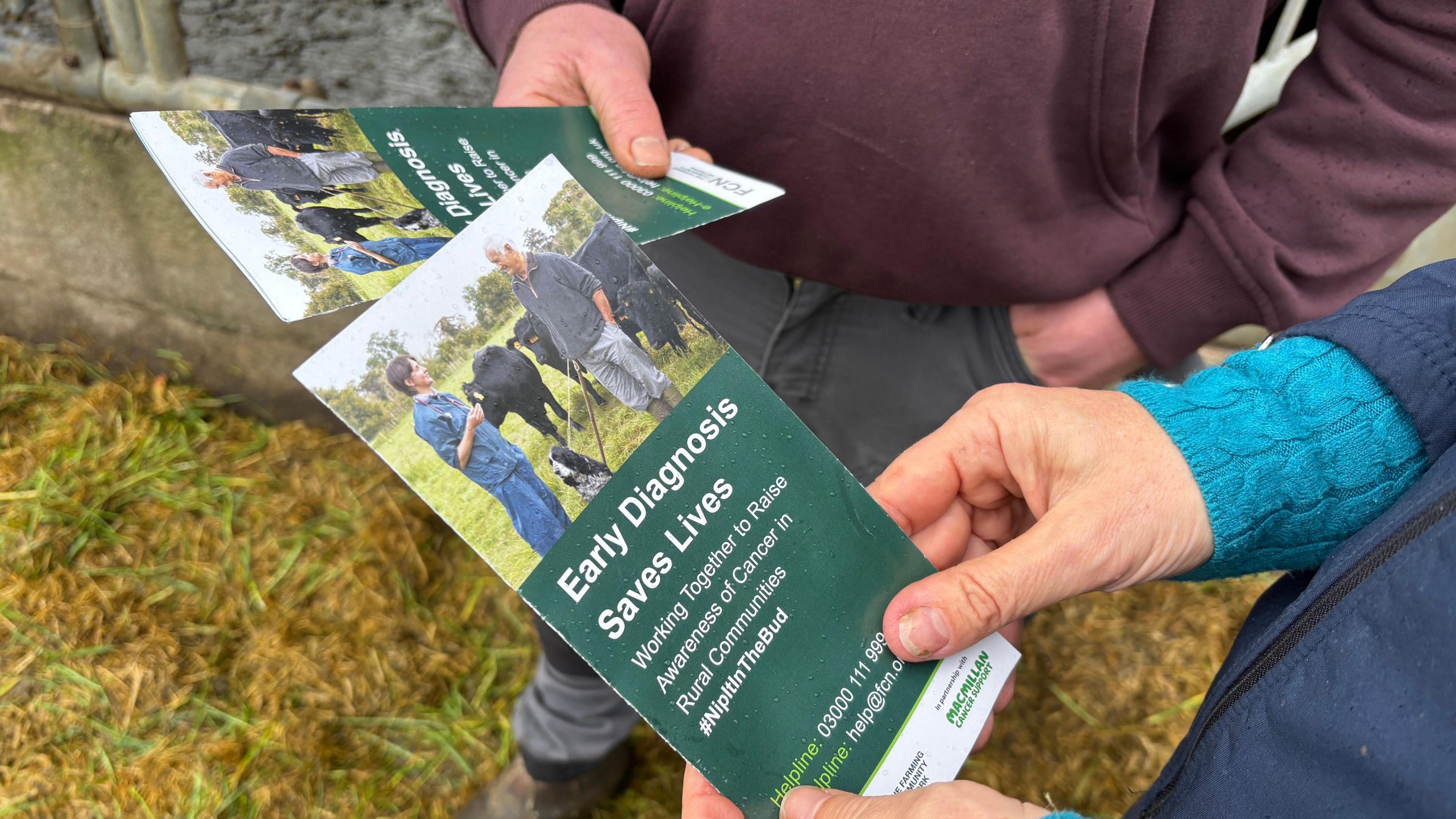
Vets have leaflets to give to farmers to help spark a conversation
Sarah Christie, nation lead at Macmillan Cancer Support, said that the traditional way of getting cancer messaging out wasn't working for farmers.
"We can put as much information through our Public Health Agency, through Macmillan, but will it resonate, will it land and do farmers actually have time to engage with it?
"So by bringing vets into this conversation the people that are constantly out on farms, looking at their lifestyles, they're a real trusted partner in those communities."
And an early diagnosis can save lives.
"Farmers do put things off until it gets to the point where things are maybe a little too late. For example, with bowel cancer, if you're diagnosed at stage one your five-year survival is at 90%," she continued.
"If that's diagnosed at stage four, the latest stage of diagnosis, survival for five years or more is reduced drastically to only 10%, which is a shocking statistic, and really shows the need for those early interventions.
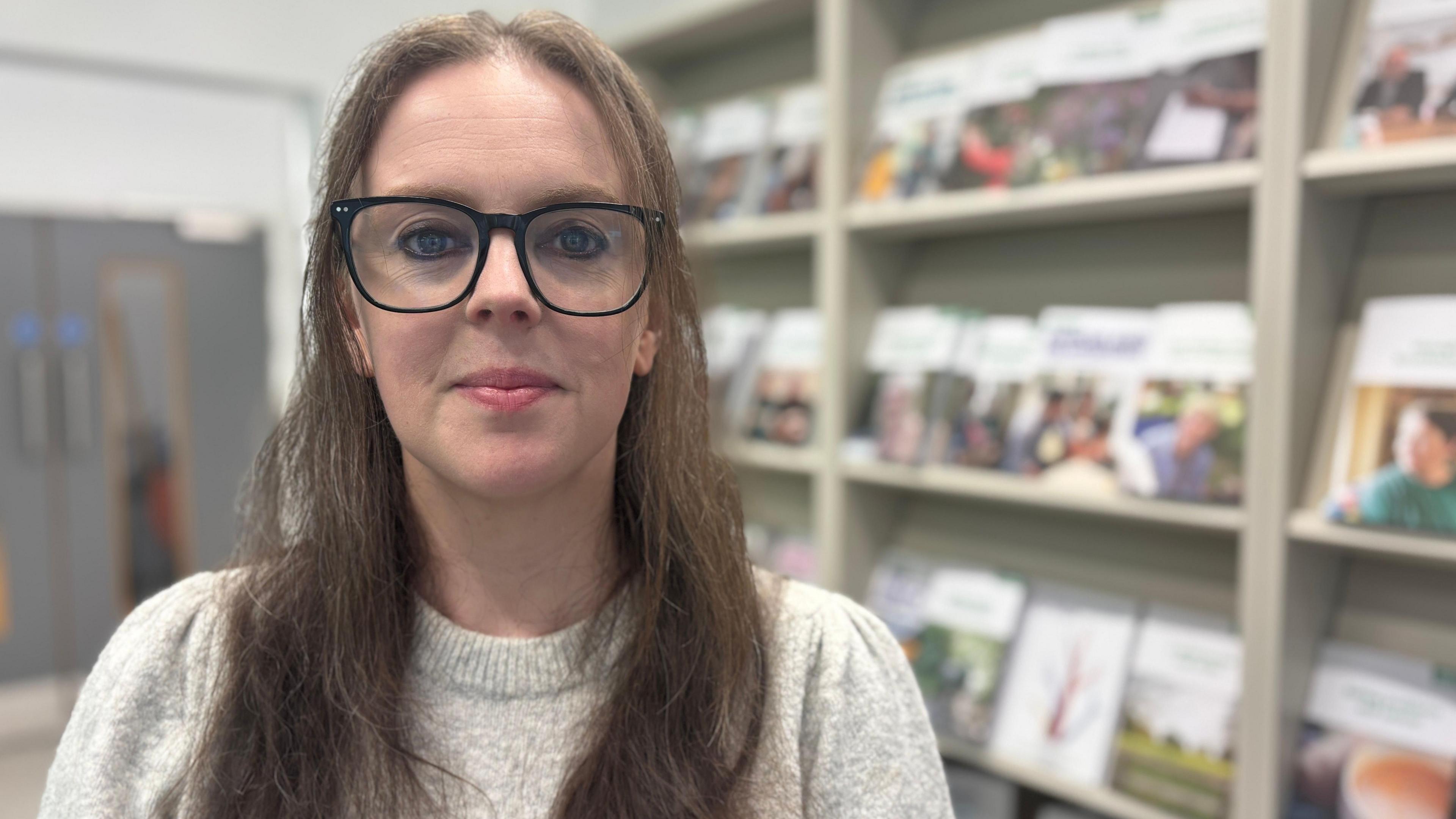
Sarah Christie from Macmillan says traditional messaging doesn't reach farmers
And the health minister has thrown his weight behind the campaign too.
In a video played at the recent Association of Veterinary Surgeons of Northern Ireland (AVSPNI) conference in Enniskillen, Mike Nesbitt said the initiative was the "first of its kind" and has the potential to "save lives".
"Too often in rural areas cancer is picked up late and because of that outcomes are worse"
He said the the project is about more than information.
"Its about empathy, trust and support reflecting the realities of rural life"
Related topics
- Published16 May 2024
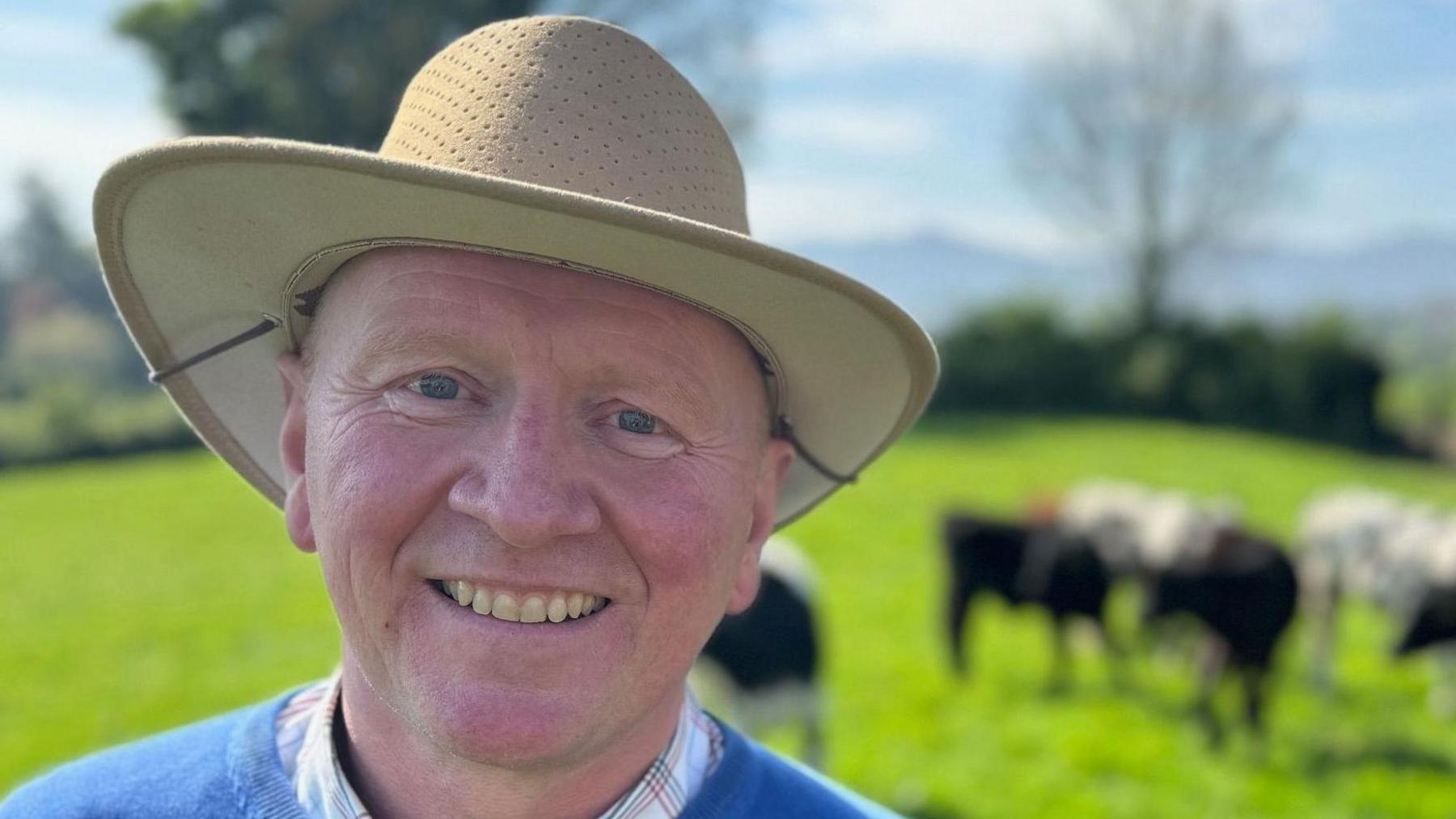
- Published7 July
